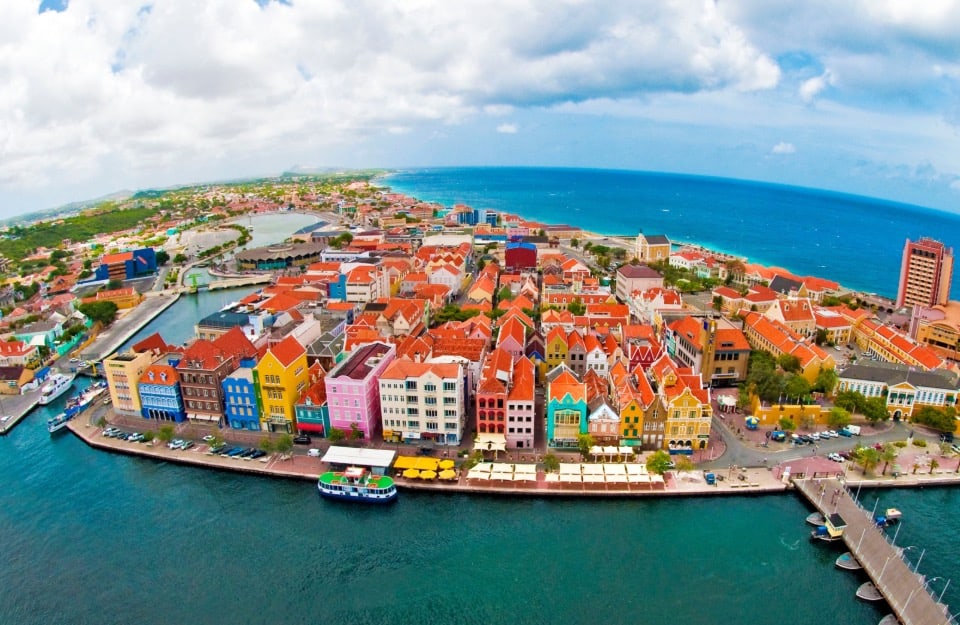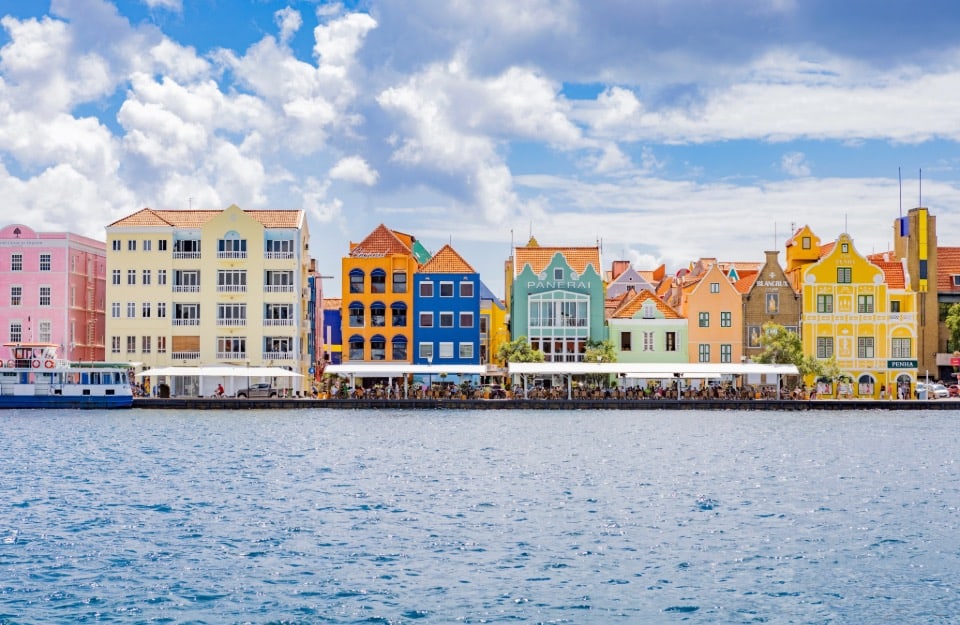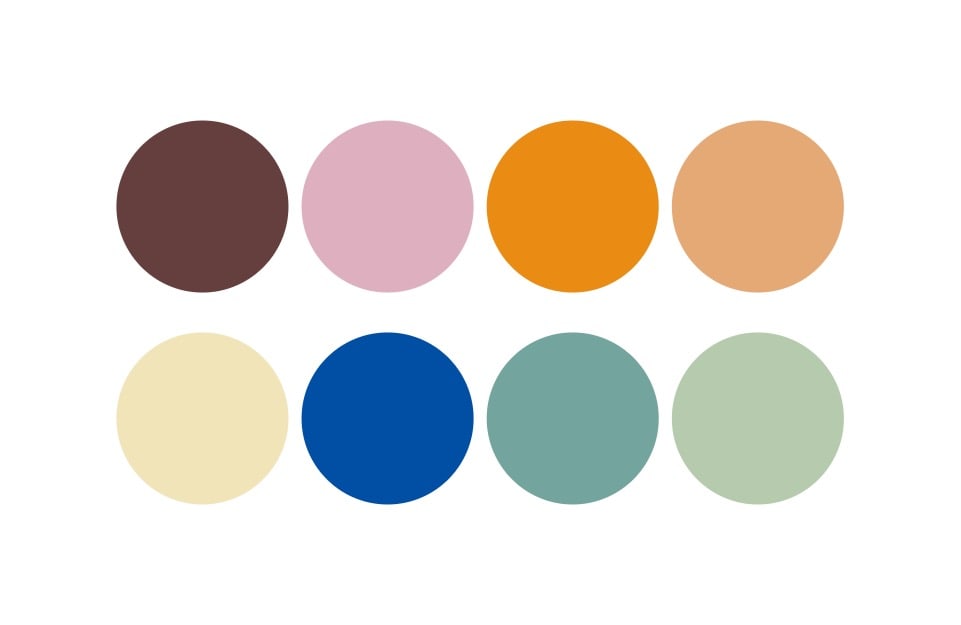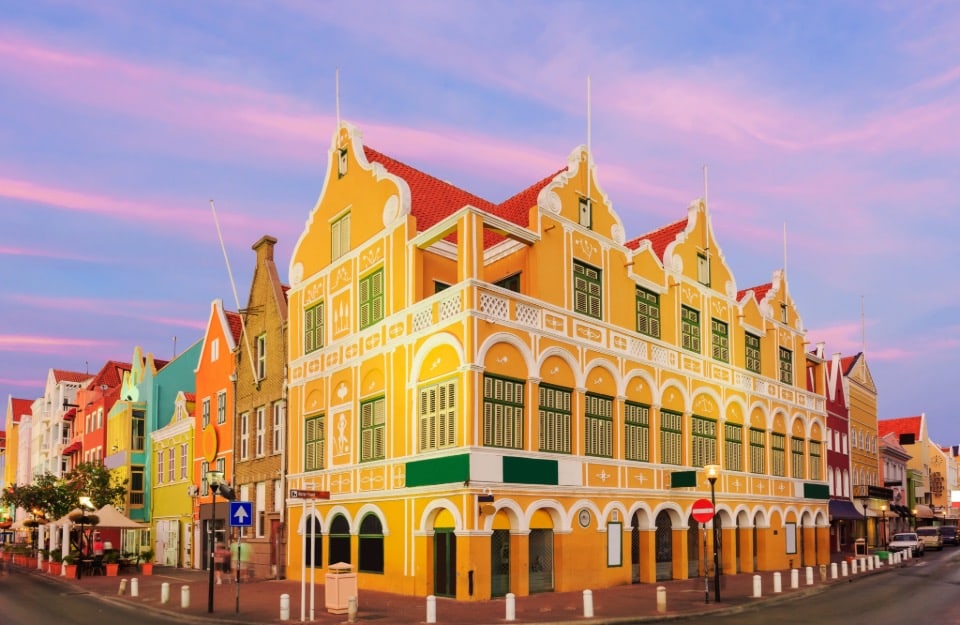Imagine a city that looks like something out of a visionary painter ‘s canvas: every building painted in harmonious colours, as if the Caribbean sun had merged with a rainbow. This is Willemstad, capital of Curaçao, jewel of the Netherlands Antilles. Besides its beaches and crystal-clear waters, Willemstad is famous for its pastel-coloured facades, whose origin is a rather curious story.
The brief history of Willemstad

Located in the southern Caribbean Sea, off the coast of Venezuela, the island of Curaçao is part of the Kingdom of the Netherlands.
Until the arrival of the Europeans at the end of the 15th century, it was inhabited by the indigenous Aruachian population, which was exterminated by the Spanish. In 1634 Curaçao was occupied by the Dutch, who founded the port city of Willemstad.
For more than two centuries, the port became a major trading hub for the slave trade. Today, the island’s economy is mainly based on oil refineries and tourism. With just over 100,000 inhabitants, Willemstad is the capital. Its historic centre, which includes the districts of Punda and Otrobanda, was declared a UNESCO World Heritage Site in 1997 because of its historic buildings and architecture where Dutch and Spanish influences mingle with Caribbean, African and South American influences.
What attracts many tourists from all over the world every year, in addition to the natural wonders, are the colourful houses and buildings, which can be found all over the island but especially in Willemstad and its two historic quarters.
The history of Willemstad ‘s colourful buildings

The tradition of colouring Curaçao’s buildings originated just over two centuries ago. The reason has a name and a surname: Albert Kikkert.
A former Dutch military commander, Kikkert was appointed governor of the island in 1816. Among the many laws he enacted, one concerned buildings, which at the time were mainly painted white. Realising that many of Curaçao’s inhabitants suffered from eye and vision problems, Kikkert thought to solve the problem by removing the white from the outer walls of the houses, which became blinding in the Caribbean sun. In 1817, he ordered that all buildings had to be repainted in pastel colours.
The law remained in force until the early 1900s. Today, there is no longer an obligation, but by tradition, people continue to paint them in many colours, though no longer just pastel. One sort of legend has it that, rather than concern for the ocular health of the inhabitants, it was themigraine Kikkert suffered from that prompted him to have the houses coloured. Another, more mischievous version claims that the governor had a certain financial interest in doing so. In fact, he would have been one of the major shareholders in the only company on the island that produced paint!
Willemstad ‘s colour palette

Strolling through the streets of Willemstad, it is impossible not to notice how the colours of the buildings evoke a refined and nostalgic palette, similar – in terms of the softer shades – to that proposed by Rio Verde’s Vintage Prestige line. The pastel yellows and browns that stand out on the buildings in the Punda neighbourhoods, or the dusty greens and blues and antique pinks of the houses in Otrobanda become sources of inspiration for fascinating colour combinations that you can bring into your own home.
Vintage Prestige paints can be used on all materials, from wood to metal, glass to plastic, fabric and small portions of wall. Incidentally, sanding or stripping is not even necessary, as these products are highly opaque.



